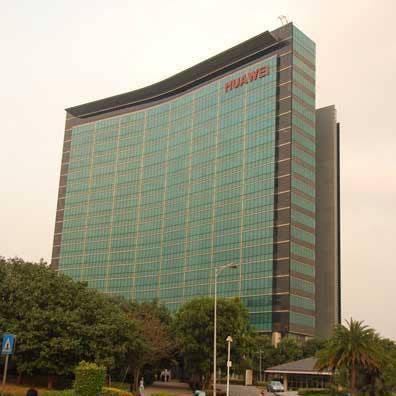Huawei Executive: ‘We Seem To Be Caught In The Middle’ Of U.S.-China Trade War
Days after President Trump signaled a possible easing of trade restrictions between U.S. tech suppliers and Huawei, the Department of Commerce appears to be keeping Huawei on its blacklist, a situation Huawei tells CRN is confusing for both sides.

The U.S. government's relationship with China-based telecom giant Huawei is still in a state of flux as mixed signals appear in the wake of the meeting earlier this week between U.S. President Donald Trump and Chinese President Xi Jinping.
Trump and Xi agreed Saturday during the G20 summit in Osaka, Japan to start negotiations on the growing trade war between the two countries, with the question of whether the U.S. will allow Huawei to do business with American countries one of the issues brought up.
Trump, in a string of Twitter posts from June 29, said that, in addition to not increasing tariffs on goods imported from China, Huawei will be allowed to purchase at least some component from the U.S.
[Related: U.S. Cuts Off Intel, AMD, Nvidia From Selling To Chinese HPC Vendors]
"At the request of our High Tech companies, and President Xi, I agreed to allow Chinese company Huawei to buy product from them which will not impact our National Security. Importantly, we have opened up negotiations again with China as our relationship with them continues to be a very good one," Trump tweeted.
However, Reuters on Tuesday reported that the U.S. Department of Commerce was told by John Sonderman, deputy director of the Office of Export Enforcement in the Commerce Department’s Bureau of Industry and Security (BIS), to consider any applications by U.S. companies for a license to sell to Huawei that the company is still on the Entity List of companies subject to a "presumption of denial" licensing policy.
The U.S. government this spring blacklisted Huawei from purchasing high-tech components from U.S.-based companies, a move that Huawei earlier this month said would cost the company $30 billion in lost revenue over the next two years.
U.S. telecom companies are also prevented from purchasing products from Huawei for critical infrastructure use due to U.S. government concerns about Huawei's ties to the Chinese government that could lead to national security issues.
The Department of Commerce, in response to an inquiry from CRN, said in an email, “Huawei remains on the Entity List, and we are reviewing export license applications for their national security impacts. The Department intends to notify companies of decisions on export license applications once the review is complete. Review of such licenses for exports to Huawei and its affiliates will continue under the highest national security scrutiny, which, under Entity List restrictions, remains a presumption of denial.”
The situation is no more clear to Huawei than it is to anyone else, said Andy Purdy, chief security officer for the U.S. for Huawei Technologies USA.
Huawei would like the opportunity to talk to the U.S. government directly about the current situation, Purdy told CRN.
"We seem to be caught in the middle in a situation not of our choosing," he said. "We think there's a lot of misunderstanding about the future."
Huawei sees two primary concerns in regards to the question of U.S. relations with the company, Purdy said.
The first is the ability to sell Huawei technology to the U.S. market. The U.S., while the most innovative country in the world, does not have a real telecom industry with the likes of Huawei, or other companies like Sweden's Ericsson or Finland's Nokia, he said. And yet the U.S. works with these two companies despite their strong connections in China, he said.
"Those are confidential agreements, so we don't know the terms of them," he said.
Huawei would be interested in working with some type of risk mitigation program with the U.S. government that would allow the company to engage with clients here while addressing the nation's security concerns, Purdy said.
While Huawei does not want to be at the center of talks between the U.S. and China over trade relations, the company does want to engage with the U.S. government in discussions.
"The best that could possibly come on that issue would be that the U.S. government would finally agree to talk with us on the merits of what kind of risk mitigation might work in the United States," he said. "There's been a lot of talk about product testing, but that's only one of the number of possibilities regarding risk mitigation."
The second primary issue is the decision by the U.S. government to prevent U.S. companies from selling high-end components that Huawei uses in its products, a business that reached $11 billion in 2018, Purdy said.
There is widespread support among U.S.-based companies for selling technology to Huawei, and very little expressed concern regarding national security issues, he said.
"But, subsequent to the President's statements at the G20 [Conference] that Huawei would be allowed to buy from American companies, there's been a tremendous amount of speculation about whether and what it will be allowed to buy from American companies," he said. "And that's not clear. So where I look at that, it appears to be the President trying to offer an olive branch as part of the U.S.-China discussion. It's been characterized as, they started up the trade talks again, and that's something that potentially China would like."